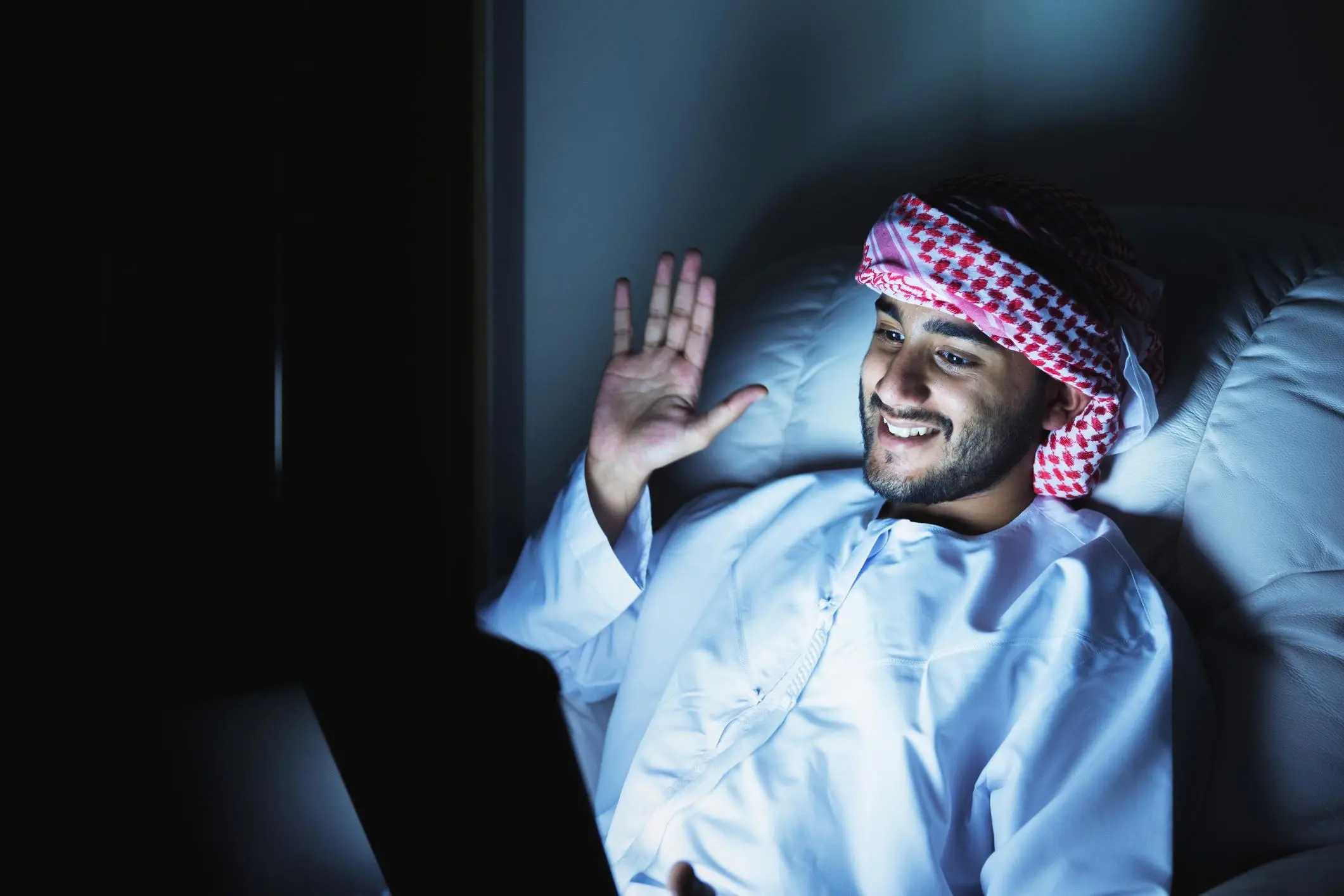PHOTO
The Sync program staged by King Abdul Aziz Center for World Culture (Ithra) on Tuesday highlighted the growing issue of digital overuse in an increasingly digitized world.
The initiative comes as digital overuse and screen addiction are blamed for problems ranging from behavioral disorders in children to insomnia in adults — issues that appear to be growing as technology spreads into all areas of our lives.
Among the well-being program’s aims is to “draw a line between the digital world and the real one.”
The wide-ranging program featured multiple workstreams and seminars on technology overuse, with perspectives from a range of disciplines including, sociology, psychology, science and neurology.
Benefits of the “digital life” were also highlighted.
Dr. Heyla Alselim, assistant professor of psychology at King Saud University, told Arab News that social media has helped reveal the true identity of the Saudi community by breaking down the walls of private life.
“We don’t have to only see the dark side of the issue, and we can’t deny that (social media) has helped the Saudi community share and communicate more, especially the youth and those eager to express themselves,” she said. “This explains how it helps in cultural exchange, such as Saudi people being fond of Japanese culture.”
Sync’s program director, Abdullah Al-Rashid, said that research for the program began almost a year ago, with 75 experts from nine countries, including the US, UK, France, Belgium, South Korea, Japan and China, collaborating in order to understand the latest thinking on the topic.
“We carried out landscape mapping of all the available research on the subject and then launched one of the largest global studies in 30 countries. We were able to study 15,000 people, and that formed the basis of this program,” he said.
Al-Rashid said that research showed that the vast majority of people are a lot more connected to their phones today than they were two years ago.
“Half the global population, one in two people in the world, say they lose sleep because of their phones,” he said.
In Saudi Arabia, the figure is even higher. “Almost three out of every four people in Saudi say that they have lost sleep because of their phones, and that is only one data point — there is a wealth of data yet to be revealed.”
The program also aims to raise awareness of the problem, encourage people to practice good digital habits, and provide international leadership for a post-pandemic digital world.
“This project has come out of something we are all aware of — technology is permeating our lives. We see it in our daily habits, in the behavior of our loved ones and in society,” Al-Rashid said. “But it also has brought us a lot of benefits, especially during the pandemic.”
The program combines research and good practice to help people use digital technology without allowing it to control their lives or cause damage that can lead to physical and mental issues.
“This extremely fast acceleration and adaptation has affected our identity, culture and language, even the words that we use,” Al-Rashid said.
“As a cultural nonprofit center, our aim is to study this phenomenon, and the implications of technology’s rise not only for our inner personal well-being but also for society at large.”
Copyright: Arab News © 2021 All rights reserved. Provided by SyndiGate Media Inc. (Syndigate.info).





















